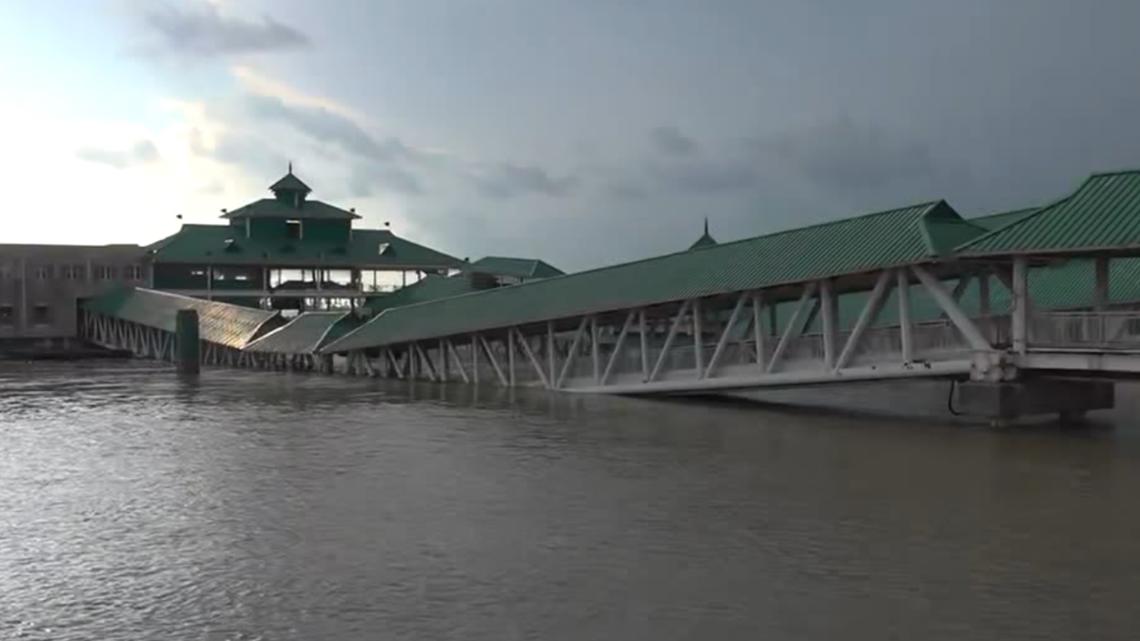CEDAR RAPIDS, Iowa — Two market studies released ahead of the Iowa Racing and Gaming Commission’s decision on the proposed Cedar Crossing Casino in Linn County reveal significant financial implications for the state’s gaming industry.
The studies, conducted by Marquette Advisors of Minneapolis and The Innovation Group of New Orleans, were submitted to the commission last month as part of Cedar Crossing’s application process. The findings will be presented during a public hearing on Jan. 23, with the commission scheduled to vote on the casino’s license application on Feb. 6.
Revenue projections and cannibalization
Marquette Advisors projected that by Fiscal Year 2029, the Cedar Crossing Casino would generate $118 million in annual adjusted gaming revenue (AGR). However, nearly 60% of that revenue, or $68 million, would come at the expense of existing Iowa casinos.
The study identified Riverside Casino as the most affected, with an anticipated revenue loss of $34 million. Meskwaki Casino would lose $14.1 million, Isle Casino in Waterloo $8.8 million, and other casinos across the state would collectively lose $11 million.
The Innovation Group‘s analysis provided slightly different figures, estimating the casino would generate $116.5 million in annual net gaming revenue (NGR) by Fiscal Year 2028, with $55.7 million attributed to cannibalization. Riverside Casino’s losses were pegged at $16.6 million, Isle Casino in Waterloo at $6.2 million, and Dubuque’s two casinos combined at $5 million.
Limited market growth
Both studies came to conclusions that Iowa’s casino market has reached a point of saturation. Marquette noted that most casinos in the state have achieved “maximum market penetration,” with the majority of customers coming from within a 30- to 45-minute drive. The study stated that Cedar Crossing’s success would largely rely on pulling patrons from other casinos rather than bringing in new customers or significantly increasing statewide gaming revenue.
Despite this, Marquette predicts the addition of Cedar Crossing would slightly increase Iowa’s total AGR from $1.723 billion in 2024 to $1.726 billion by 2029. The Innovation Group’s analysis projects a $60 million net annual contribution to the state’s economy, emphasizing Cedar Crossing’s ability to capture around 5% of local gaming revenue.
Regional competition
The studies also examined how neighboring states’ gaming markets are impacting Iowa’s casinos. The recent opening of the Hard Rock Casino in Rockford, Illinois, has begun drawing patrons from Dubuque and Clinton. Additionally, a casino under construction in Beloit, Wisconsin, and the rapid expansion of Nebraska’s gaming industry, with four new casinos, are intensifying competition in the Midwest.
Casinos in Council Bluffs, located near the Nebraska border, have already reported revenue declines as Nebraska operators capture more local customers.
Economic and operational considerations
The construction phase is expected to contribute $115.2 million to the local economy, supporting over 1,300 jobs.
The casino’s broader impact includes a pledge to dedicate 8% of its net gaming revenue to philanthropy through the Linn County Gaming Association, more than twice what is required by state law. This would provide approximately $8.5 million annually to local nonprofits, a key selling point for proponents of the project.
Opposition
Despite the potential benefits, opposition to Cedar Crossing remains strong. Riverside Casino and the Washington County Riverboat Foundation have filed a petition against the project, citing concerns over cannibalization and the long-term viability of existing casinos. The commission will hear arguments regarding the petition during its Jan. 23 meeting in Jefferson, Iowa and is expected to issue a written decision by Jan. 27.
This isn’t the first time Cedar Rapids has pursued a casino. Previous proposals were denied by the Iowa Racing and Gaming Commission in 2014 and 2017.
The commission’s final vote on Cedar Crossing’s application will occur on Feb. 6 in Altoona.





